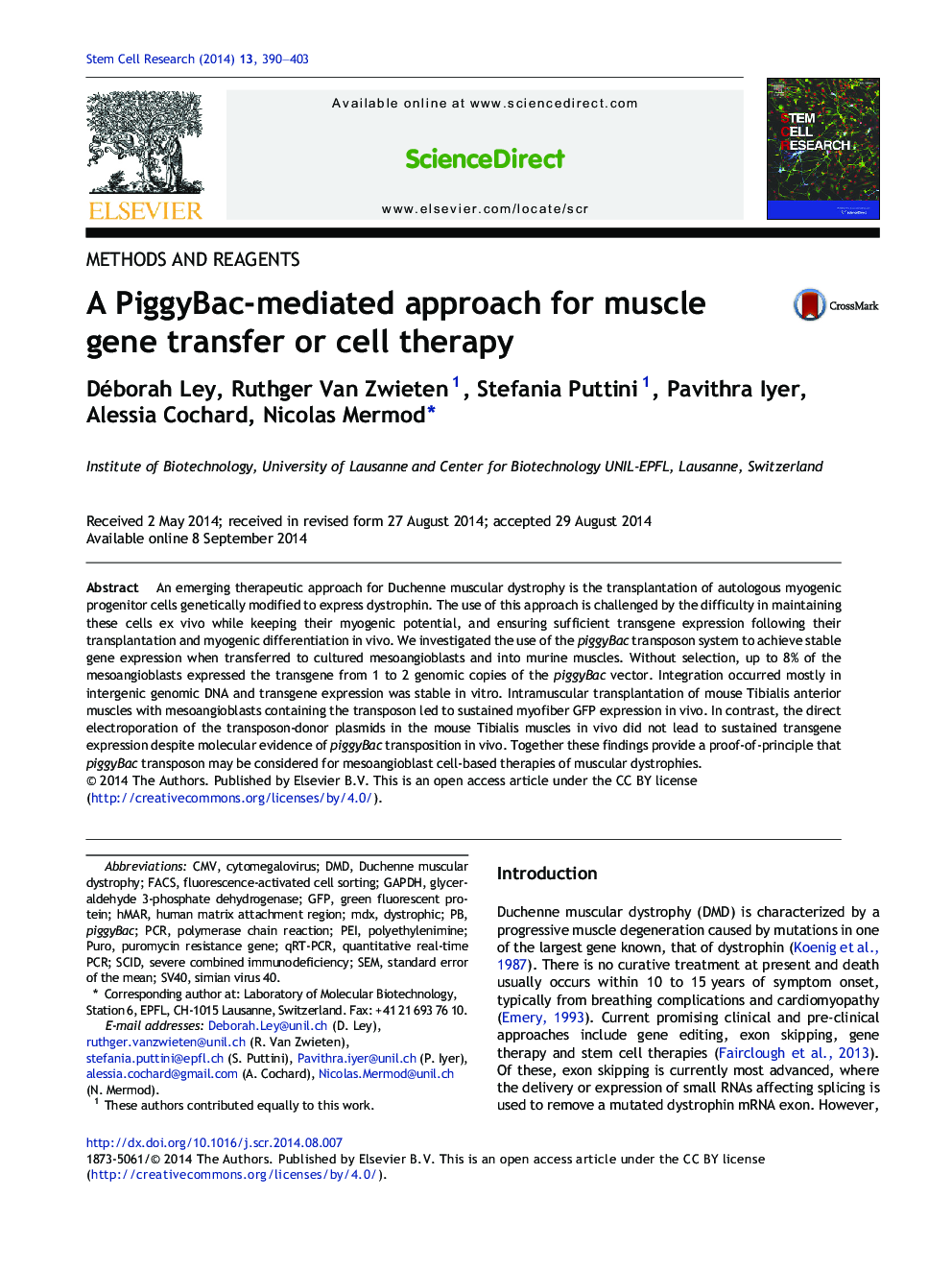| Article ID | Journal | Published Year | Pages | File Type |
|---|---|---|---|---|
| 2094253 | Stem Cell Research | 2014 | 14 Pages |
•PiggyBac transposase mediates efficient gene transfer in murine mesoangioblasts.•Persistent transgene expression from few transpositions in mostly non-coding DNA.•Mesoangioblast injection allowed sustained transgene expression in muscles in vivo.•PiggyBac offers an approach to label mesoangioblasts or express therapeutic genes.
An emerging therapeutic approach for Duchenne muscular dystrophy is the transplantation of autologous myogenic progenitor cells genetically modified to express dystrophin. The use of this approach is challenged by the difficulty in maintaining these cells ex vivo while keeping their myogenic potential, and ensuring sufficient transgene expression following their transplantation and myogenic differentiation in vivo. We investigated the use of the piggyBac transposon system to achieve stable gene expression when transferred to cultured mesoangioblasts and into murine muscles. Without selection, up to 8% of the mesoangioblasts expressed the transgene from 1 to 2 genomic copies of the piggyBac vector. Integration occurred mostly in intergenic genomic DNA and transgene expression was stable in vitro. Intramuscular transplantation of mouse Tibialis anterior muscles with mesoangioblasts containing the transposon led to sustained myofiber GFP expression in vivo. In contrast, the direct electroporation of the transposon-donor plasmids in the mouse Tibialis muscles in vivo did not lead to sustained transgene expression despite molecular evidence of piggyBac transposition in vivo. Together these findings provide a proof-of-principle that piggyBac transposon may be considered for mesoangioblast cell-based therapies of muscular dystrophies.
